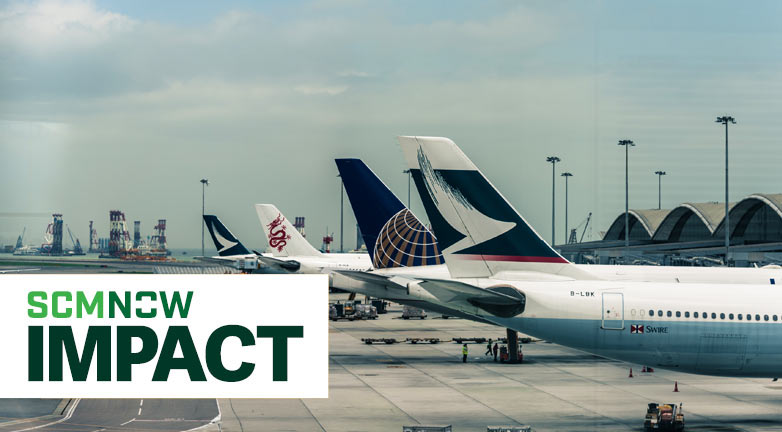From Our CEO

Hong Kong Airport Protests Shock Supply Chains
By ASCM CEO Abe Eshkenazi, CSCP, CPA, CAE
Last year, 5.1 million metric tons of air cargo passed through Hong Kong, making it the world’s busiest hub for air cargo traffic. When protests disrupt such an active facility, it’s no wonder that supply chains around the world are unnerved.
According to Bloomberg, Hong Kong’s standing as a safe and reliable commercial hub may face irreparable damage. Authors Enda Curran, Jeanny Yu and Alfred Liu call this “a potential death blow for an economy that has leveraged its business-friendly reputation to become the primary gateway between China and the rest of the world.”
Experts estimate that the airport protest could end up costing $1.4 billion in air cargo. A small amount of emergency materials were affected. In addition, several semiconductor original equipment manufacturers (OEMs) reported that their logistics were interrupted. Many companies handled urgent orders by transferring flights to Shenzhen or Shanghai.
While normal operations continue at the airport for now, circumstances surrounding the unrest in Hong Kong are ambiguous. The discontent involves the proposed extradition bill known as Fugitive Offenders and Mutual Legal Assistance in Criminal Matters Legislation. In addition to concerns surrounding the extradition, protesters believe the bill will weaken Hong Kong’s already tenuous autonomy from China.
“If the violence in Hong Kong becomes the norm, it will force mainland electronic component agents to gradually detach their dependence on Hong Kong and turn import and export trade to Shenzhen, Shanghai and other mainland bonded warehouses,” writes Fendy Wang for EE Times. “Once this happens, semiconductor OEMs and large agents need to make major adjustments to their business, and small and medium-sized distributors with import customs declarations will also be hit hard.”
Another fear for many in the city is that China may eventually use force to restore order. “Such a move would undermine the ‘one country, two systems’ principle that has underpinned Hong Kong’s success since 1997 and potentially lead to a crippling withdrawal of special trading privileges by the U.S.,” the Bloomberg article states. “Even if Hong Kong avoids worst-case scenarios, the city’s appeal may already be waning in the eyes of many international companies and investors.”
Essential preparation
Logistics, transportation and distribution professionals know better than most that disruption is a constant these days. The APICS Certified in Logistics, Transportation and Distribution (CLTD) designation is the premier certification for professionals who want to demonstrate mastery of these topics and get ahead of the curve. The CLTD journey exposes you to in-depth education on a broad range of topics, including global logistics, network design, transportation, sustainability and much more.
Take this important step to invest in yourself. APICS certifications and the body of knowledge have been the global standard in professional development for 60 years. They are recognized and sought after by companies around the world — in fact, CLTD designees on average earn 27% more than their counterparts without an APICS certification.
Your logistics expertise is more valuable now than ever before. See what CLTD can do for your career and organization.